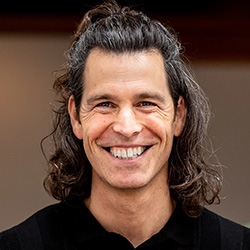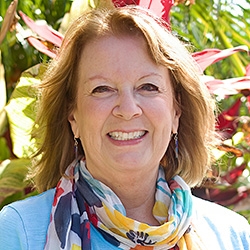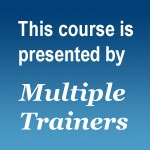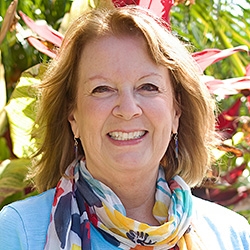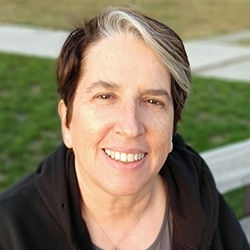

Search Results: connection
-
John Kinyon teaches mindfulness and how to translate thoughts into clear observations.
-
Ingrid shares about the three primary keys of parenting & NVC, two child rearing models, developmental needs for children and how to foster secure attachment.
-
Here are some questions to support you in exploring your connection to life, your life purpose. Here we briefly touch upon what blocks you, your gratitude, strengths, passions, and what you are committed to.
-
- Discover how to be radically honest without pushing “the other” away
- Learn to ask firmly and gracefully for what you want, hear ‘NO,’ and stay alive
- Explore how the power of empathy dissolves anger, pain, and fear
- Discern the essence of what others say, no matter how it is expressed
-
Have you ever been in a meeting where the agenda is full and someone gets triggered? Did you get stuck in an empathy spiral and a never ending meeting? Roxy Manning shares the difference between healing empathy functional empathy.
-
- Learn how to use empathy to dissolve conflict
- Deepen your NVC skills to help let go of judgments
- Explore approaches for asking for what you want
- Listen to the conflict within yourself
-
To express opposition without stimulating distress, stop judging and look for ways to honor, understand, and have compassion for others. You can do this by finding a point of agreement. For example, you can agree with part of what they said. Or if you completely disagree, you can express what greater understanding, inspiration, appreciation or empathy you have in response to what they're saying. Read on for more on this, plus, ten sentence stems to get you started.
-
Trainer Tip: Q: How do we get the love we want? A: Ask for it.
-
In this brief audio snippet, CNVC Certified Trainer and founder of the CNVC Parenting Project, Inbal Kashtan, offers a profound insight that can change how we see and relate to our children.
-
In this brief audio snippet, CNVC Certified Trainer and founder of the CNVC Parenting Project, Inbal Kashtan, explores observation in contrast to interpretation, and leads an exercise in observation skills.
-
Differing worldviews can lead to conflict, discover pathways to greater understanding.
-
With abundant evidence that most people have unconscious biases against people --even when that bias runs counter to their own values-- there's a strong chance you recreate this disconnect with people far more often than you recognize. So even with a high degree of NVC skills you may behave in a way that seems "NVC" but also reproduces the painful patterns that marginalized people all-too-often experience. Read on for ways to transform pitfalls of NVC into more reliable connection.
-
How do we talk to ourselves and with others about polarizing topics in a way that's supportive? Seek to understand and be understood rather than press for agreement. Bring mindfulness into the conversation. Slow down and use structure to support everyone. Release knowing the solutions, answers or outcomes. Keep focus on shared universal needs. From this place we can say what's in our hearts and minds, and trust the process.
-
Trainer Tip: You may find yourself assessing the relationship with someone just based on how they feel. Check in with yourself: How do you feel and what needs of yours are met when you spend time with someone? Consider whether this relationship is working for you. If it isn't, be specific about which of your needs are unmet. Notice if you can do anything to help meet them.
-
Rita Herzog shares how to stay true to your needs while extending empathy in family relationships.
-
If you're stuck when making a decision with someone, it's likely that you've skipped hearing and connecting to one another's needs. Slow down and listen for what's really important underneath the content. This allows you to make decisions that are more fulfilling and harmonious.
-
We can cultivate spiritual clarity through bringing attention to our intentions, mourning, gratitude, and the dynamic flow of feelings and needs. This can bring more autonomy, choice and liberate the energy of connection and contribution. We can also awaken our hearts to see the reality that our well-being is mutually interdependent. Read on for more.
-
Puzzling about needs and feelings? Check out this excerpt from Dian Killian's course, Embracing the Body: Somatic Self Empathy, where she leads participants through an exercise that demonstrates how our physical sensations connect us to our feelings and needs.
-
Puzzling about needs and feelings? Check out this excerpt from Dian Killian's course, Embracing the Body: Somatic Self Empathy, where she leads participants through an exercise that demonstrates how our physical sensations connect us to our feelings and needs.
-
Iris Bawidamann explains how needs, like appreciation, can easily turn into demands or self-blame when approached from a place of lack or expectation. This practice is based on the work of Living Compassion, shared by Robert Gonzales, focusing on the beauty of needs and the living energy of needs
Quick Links

Stay in Touch!
We value your privacy, won't share your email address and you can easily unsubscribe any time.






